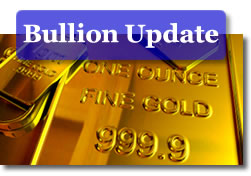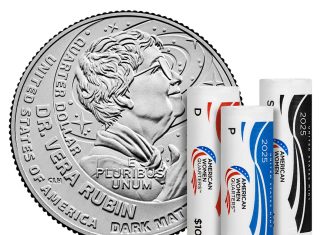 The Answer, My Friend, is…Nowhere In the Wind
The Answer, My Friend, is…Nowhere In the Wind
Good Morning,
Bargain hunters once again made an appearance in the gold markets as their favourite metal was getting set for a third week of price erosion in a row. Thus, bullion values bounced from Thursday’s low in the mid-high $1180’s and were once again seen orbiting around the psychologically significant round figure overnight and early this morning.
Although gold did not make much progress above the $1200 pivot point, the emergence of speculative position-takers and Indian (as well as Thai) physical shoppers also limited the extent to which prices were seen as possibly falling. Thus the metal is caught in the broader $1180 to $1230 range but still needs a major advance to the upside in order to begin to undo the three week-long damage on the charts (and in recent buyers’ psyches). For the moment, the possible double-top trace on the charts looms larger than intra-day actions.
This morning’s mild price gains were achieved against fairly lackluster news and other markets action background. Thinning ranks of participation might yet make for volatile conditions as the day wears on, however players are still seen as opting mainly for book-squaring and watching recently established position pan out (or not).
Wholesale inventory figures are on tap on the economic calendar and they might supply additional clues as to the extent of the slack still remaining in the US economy. Overall however, the apprehensions over the sovereign debt crisis and the possibility of a second wave of economic slowdown have been on the retreat this week. Not full retreat, but a noticeable ebbing nevertheless.
Not ebbing -in the least- and despite some worrying contrarian indicators, is the sentiment of the secular gold bulls towards the yellow metal. Orpheus Capitals CEO in a Business Standard piece on the next possible "trade" (short gold/long copper) finds that: [Gold] investors are so focused on historical highs that extrapolation becomes intuitive, irrationality looks normal. The view sans relative value turns out costly over the longer term. Gold is moving up exponentially and has been rising for a record 10 years without a retracement of more than 38.2 per cent. The metal has not witnessed a fall bigger than nine months in time. Technical indicators are non-confirming and suggest weakness rather than strength."
However, does any of that matter when "if you ask market players to compare physical gold and simple arithmetical relative performance, which do you think they would choose? Definitely gold. When it comes to gold, we can short all sanity and go long on all owning gold. The very fact that the society is so long on irrationality is the reason that time cyclicality works."
The author concludes that "Markets move from one extreme to the other, and it is between these two extremes that the society pauses, gets into excitement lows, becomes conservative, talks about value, lays down new foundations and structures, talks about ethics and corporate governance, gets debt smart, etc. This pause is also known as rationality. Behavioural finance clearly highlights that investors diversify less. Diversification is also suggested as an action point to reduce risk. [The] inability to look at gold relatively to other assets, including dollar (denominated currency), is likely to prevent investors from comprehending a macro portfolio of global assets. Most of the times, investors are so regional in their outlook, or so focused on a few assets, that they don’t realise the foregone opportunity cost and other macro adjustments."
Gold spot prices opened with a $4.50 per ounce gain for the week’s final session. Spot bid was quoted at $1203.00 as against a marginal rise on the US dollar index (last seen at 83.78) and a still-steady euro (at $1.263). Crude oil marked time near $75.00 per barrel, but was still on course for its best weekly gain since May on the back of rising optimism about global economic conditions. The IMF reports certainly did the trick as far as this week has been concerned.
Silver opened with a 3-cent gain, at one penny under the $18.00 round figure while platinum and palladium managed some price gains as well; the former rising $4 to $152.00 and the latter adding $6 to start at the $452.00 per ounce level. Rhodium remained unchanged at $2400.00 on the bid-side.
Aside from gold’s trials and tribulations, the past week was kind to the commodities’ complex overall. Following a brutal cratering last week the S&P GSCI Index staged a technical rebound that could make for the largest weekly advance since April in the niche. Thank you, IMF — once again. An outlook reinforced by the ECB’s Juergen Stark this morning, who stated that the ‘worst is over’ in the European sovereign debt crisis. Score: end-of-the-world alarmists:0 — official sector officials:1 — in this world economic cup, thus far, at least.
Speaking of the IMF, the institution had some strong words of advice for the USA. Not very palatable words in certain circles, to be sure (one US administration official labeled the IMF’s conclusions as ‘too harsh’). Also not very acceptable words among other segments of the US populace whose members feel entitled to carrots that were best dangled in the postwar period but are now seen as damaging to the nation (at least by the IMF).
Specifically, the ‘heretical’ talk by the IMF –when it comes to how the US might get its deficit act together best- included such ‘taboo’ topics as cutting Social Security, abandoning the interest deduction on home mortgages, and further taxing gasoline purchases. Welcome to euro-style austerity programs in the Land of the Free? No, we are not talking Belize here.
The problem here is that good as the IMF’s proposals may be, the US may not offer enough growth and spending among consumer to tax. To wit, historic low mortgage rates and attractive mortgage interest deductions notwithstanding, "the number of contracts to purchase previously owned houses plunged 30 percent in May after a homebuyer tax credit expired, the National Association of Realtors said the same day. The drop was the biggest in records dating to 2001." —reports Bloomberg.
And thus, notes the IMF proposals, "but job creation, the sluggish recovery and the growing budget deficit are likely to be top issues in November elections that will decide control of Congress."
President Obama’s take on matters economic?
"Government doesn’t have all the answers."
You can say that again. And probably include the IMF in there as well. And everyone else who thinks they have answers to pressing questions.
Happy Trading.
Jon Nadler
Senior Analyst
Kitco Metals Inc.
North America
Blog: http://www.kitco.com/ind/index.html#nadler
In recommended coin news of the day, the latest United States Mint coin production figures for America the Beautiful Quarters are out and available in the article: 2010 Yellowstone National Park Quarters Mintages.










